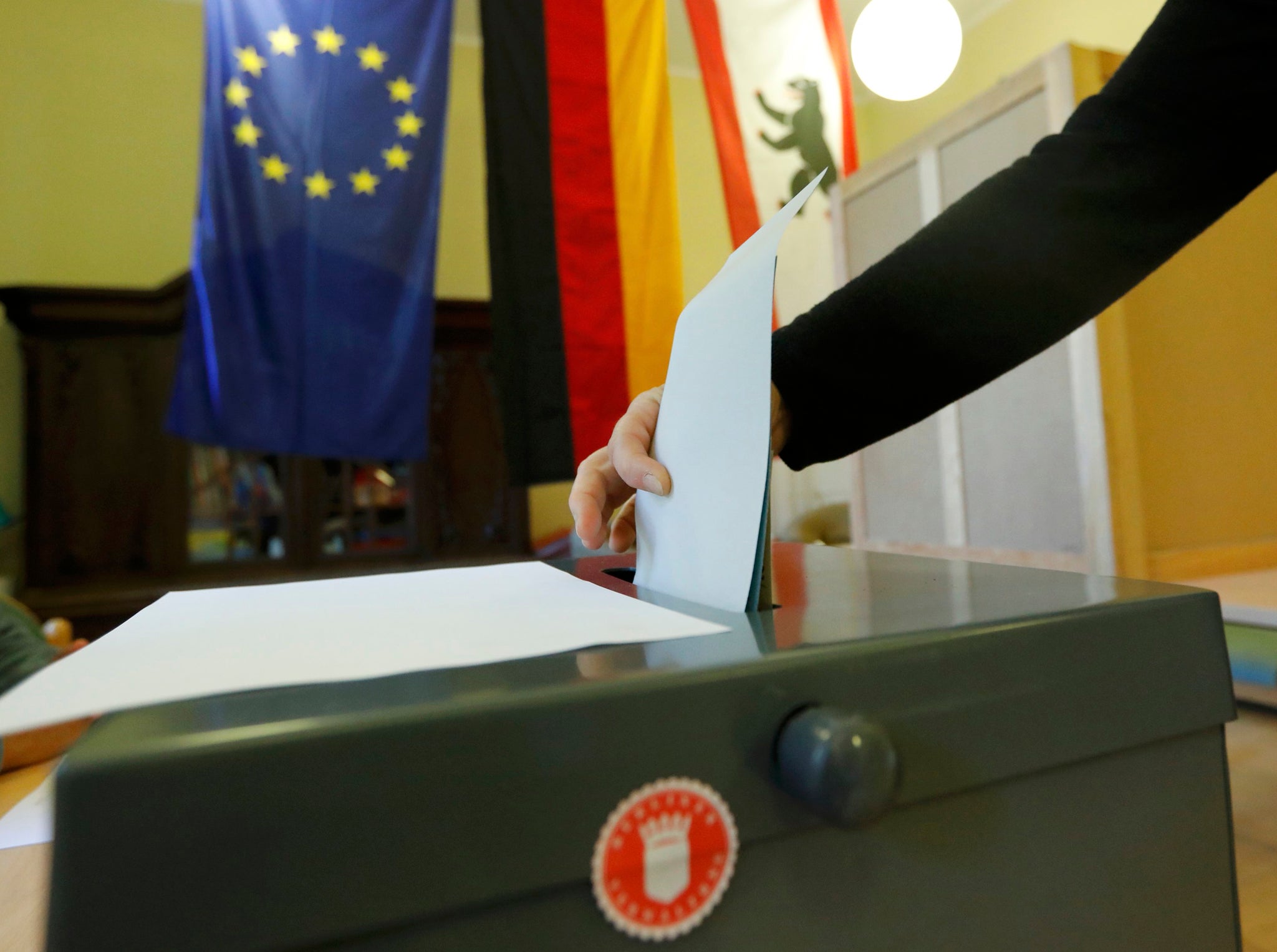German Chancellor Angela Merkel set for major setback in Berlin elections
The recent election losses has led to speculation that the three-term Chancellor may not stand for another term in next year's federal election

Your support helps us to tell the story
From reproductive rights to climate change to Big Tech, The Independent is on the ground when the story is developing. Whether it's investigating the financials of Elon Musk's pro-Trump PAC or producing our latest documentary, 'The A Word', which shines a light on the American women fighting for reproductive rights, we know how important it is to parse out the facts from the messaging.
At such a critical moment in US history, we need reporters on the ground. Your donation allows us to keep sending journalists to speak to both sides of the story.
The Independent is trusted by Americans across the entire political spectrum. And unlike many other quality news outlets, we choose not to lock Americans out of our reporting and analysis with paywalls. We believe quality journalism should be available to everyone, paid for by those who can afford it.
Your support makes all the difference.Angela Merkel's Christian Democrats (CDU) is expected to suffer a further political setback in the Berlin state elections.
The polls predict the anti-immigrant Alternative for Germany (AfD) will make gains for the second time in two weeks profiting from a popular backlash over the Chancellor's refugee policy.
Voting began at 8am with 2.5 million eligible to decide who to represent them in the Berlin city assembly.
The latest Berlin poll by Forschungsgruppe Wahlen for ZDF public broadcaster put the CDU on 18 percent, down 5 points and far behind the SPD's projected 23 percent.
It put the AfD on 14 percent, the leftist Die Linke at 14.5 percent and the ecologist Greens on 15 percent.
The heavy losses projected for CDU could lead to the centre-left Social Democrats (SPD) dropping them as coalition partners.
The CDU was pushed into third place behind AfD in the eastern state of Mecklenburg-Vorpommern with 19 per cent of the vote behind AfD's 20.8 per cent.
The Mecklenburg-Vorpommern election results has caused the Chancellor's conservative allies to call for a cap of 200,000 refugees per year.
Ms Merkel has rejected such a limit and has defended her approach through securing the EU's external borders, agreeing migration deals with the likes of Turkey and distributing refugees across Europe.
The recent election losses has led to speculation that Chancellor Merkel may not stand for a fourth term in next year's federal election.
The AfD has campaigned heavily on the migrant issue, playing to voters' fears about the cost of the roughly 1 million migrants who entered Germany last year and about their integration.
Join our commenting forum
Join thought-provoking conversations, follow other Independent readers and see their replies
Comments